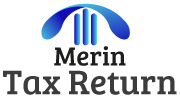What to Provide Your Accountant for a Tax Return in the UK: A Complete Guide
Filing a tax return in the UK can be a daunting task, especially if you’re unfamiliar with the process. Whether you’re self-employed, a business owner, or have multiple income streams, working with an accountant can save you time, reduce stress, and ensure compliance with HMRC regulations. However, to make the process smooth and efficient, you need to provide your accountant with the right information and documents.
In this blog, we’ll walk you through everything you need to provide your accountant for a tax return in the UK. From income details to allowable expenses, we’ve got you covered.
1. Personal Information
Your accountant will need basic personal details to complete your tax return. This includes:
- Your full name, address, and contact information: This ensures that your tax return is filed under the correct identity and that HMRC can contact you if necessary.
- Your Unique Taxpayer Reference (UTR) number: This is a 10-digit number issued by HMRC when you register for self-assessment. It’s essential for filing your tax return.
- Your National Insurance (NI) number: This is another key identifier used by HMRC.
- Your tax code (if applicable): If you’re employed, your tax code will be on your P60 or P45.
- Details of any previous tax returns filed: This helps your accountant understand your tax history and identify any carry-over information.
2. Income Details
Your accountant needs a complete picture of your income to accurately calculate your tax liability. Provide the following:
Employment Income
- P60 form: This shows your income and tax paid from employment for the tax year. It’s issued by your employer at the end of each tax year (5 April).
- P45 form: If you left a job during the tax year, your employer should provide you with a P45. This form details your income and tax paid up to your leaving date.
- P11D or P9D forms: These detail any benefits or expenses provided by your employer, such as company cars, health insurance, or travel expenses.
Self-Employment Income
- Invoices and sales records: These documents show the income you’ve generated from your business.
- Bank statements showing business income: These help verify the income recorded in your invoices.
- Records of any cash transactions: If you’ve received cash payments, keep a detailed record of these transactions.
Rental Income
- Details of rental income received from properties: This includes rent from residential or commercial properties.
- Expenses related to property maintenance, repairs, and management: These can be deducted from your rental income to reduce your tax liability.
Investment Income
- Dividend vouchers from shares: These show the dividends you’ve received from investments in companies.
- Interest statements from banks or building societies: These detail the interest earned on savings accounts.
- Details of any capital gains from the sale of assets: This includes profits from selling property, shares, or other investments.
Other Income
- Pension statements: These show the income you’ve received from private or state pensions.
- State benefits (e.g., Child Benefit, Universal Credit): Some benefits are taxable and need to be declared on your tax return.
- Foreign income (if applicable): If you’ve earned income abroad, you’ll need to declare it on your UK tax return.
3. Allowable Expenses
To reduce your taxable income, you can claim allowable expenses. Provide your accountant with records of:
Self-Employment Expenses
- Office costs (e.g., stationery, phone bills): These are expenses directly related to running your business.
- Travel expenses (e.g., fuel, train tickets): You can claim for travel costs incurred for business purposes.
- Stock and materials: The cost of goods you buy to sell or use in your business.
- Professional fees (e.g., accountant or legal fees): Fees paid for professional services related to your business.
- Insurance costs: Business insurance premiums can be claimed as an expense.
Rental Property Expenses
- Mortgage interest (restricted for higher-rate taxpayers): You can claim a portion of the interest on your mortgage as an expense.
- Repairs and maintenance costs: Costs for fixing or maintaining your rental property.
- Letting agent fees: Fees paid to letting agents for managing your property.
- Council tax and utility bills (if paid by you): If you pay these bills for your rental property, they can be claimed as expenses.
Other Expenses
- Charitable donations (Gift Aid): Donations made through Gift Aid can be claimed as tax relief.
- Pension contributions: Contributions to your pension can reduce your taxable income.
- Professional subscriptions: Membership fees for professional bodies related to your work.
- Bank Statements
Provide your accountant with bank statements for all accounts, including personal, business, and savings accounts. These help verify income and expenses.
5. VAT Records (if applicable)
If you’re VAT-registered, provide:
- VAT returns filed during the tax year: These show the VAT you’ve charged and paid.
- Records of VAT charged and paid: Detailed records of VAT transactions.
6. Previous Tax Returns
If you’ve filed tax returns before, share copies with your accountant. This helps them identify trends and ensure consistency.
7. Records of Tax Payments
Provide details of any tax payments made during the year, including:
- Payments on account: These are advance payments towards your tax bill.
- Payments under PAYE (if employed): Tax deducted from your salary.
8. Additional Information
- Details of any tax reliefs or allowances you’re claiming: This includes Marriage Allowance, Blind Person’s Allowance, etc.
- Information about any changes in your circumstances (e.g., marriage, divorce, new business): Changes in your personal or financial situation can affect your tax liability.
- Records of any HMRC correspondence: Any letters or emails from HMRC should be shared with your accountant.
Why Providing Accurate Information Matters
Providing complete and accurate information ensures:
- Your tax return is filed correctly and on time: This avoids penalties and interest charges.
- You pay the right amount of tax (avoiding underpayment or overpayment): Accurate information helps your accountant calculate your tax liability correctly.
- You claim all allowable expenses and reliefs, reducing your tax liability: Maximising your claims can save you money.
Tips for Organising Your Documents
- Use folders (physical or digital) to categorise documents: This makes it easier to find the information your accountant needs.
- Label files clearly (e.g., “Income,” “Expenses,” “Bank Statements”): Clear labelling helps your accountant navigate your documents.
- Keep records for at least six years, as HMRC may request them: HMRC can investigate your tax affairs for up to six years.
Common Mistakes to Avoid
- Missing deadlines: The deadline for online tax returns is 31 January following the end of the tax year. Missing this deadline can result in penalties.
- Incomplete or inaccurate information: Providing incomplete or incorrect information can lead to errors on your tax return.
- Not keeping records: Failing to keep records can make it difficult to provide the information your accountant needs.
Case Studies
Case Study 1: Self-Employed Freelancer
Sarah is a freelance graphic designer. She provides her accountant with:
- Invoices and sales records.
- Bank statements showing business income.
- Receipts for office supplies, software subscriptions, and travel expenses.
- Records of pension contributions and charitable donations.
Her accountant uses this information to calculate her taxable income and claim all allowable expenses, reducing her tax liability.
Case Study 2: Landlord with Multiple Properties
John owns three rental properties. He provides his accountant with:
- Details of rental income from each property.
- Records of mortgage interest, repairs, and letting agent fees.
- Bank statements showing rental income and expenses.
- Previous tax returns for reference.
His accountant uses this information to calculate his rental income and expenses, ensuring he pays the correct amount of tax.
FAQs
Q: What if I miss the tax return deadline?
A: If you miss the deadline, you may face penalties. It’s important to file your tax return as soon as possible and pay any tax due to minimise penalties.
Q: Can I claim expenses if I work from home?
A: Yes, you can claim a portion of your home expenses (e.g., heating, electricity, internet) if you work from home.
Q: What if I have income from abroad?
A: You must declare foreign income on your UK tax return. Your accountant can help you navigate the rules and claim any double taxation relief.
Conclusion
Filing a tax return in the UK doesn’t have to be overwhelming. By providing your accountant with the right information and documents, you can streamline the process and ensure compliance with HMRC regulations. Remember, the more organised and thorough you are, the easier it will be for your accountant to complete your tax return accurately and efficiently.
If you’re unsure about what to provide, don’t hesitate to ask your accountant for a checklist. They’re there to help you navigate the complexities of the UK tax system and ensure you meet your obligations.

